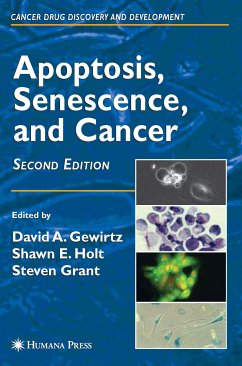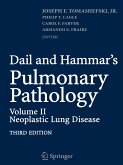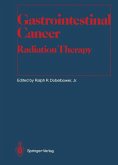The volume is divided into six easy to follow sections. The first is Apoptosis and Alternative Modes of Cell Death, followed by chapters on Telomeres and Telomerase, Senescence, Genomic Instability and Tumorigenesis. The third part covers DNA Damage Response, Signaling Pathways and Tumorigenesis, while the fourth delves into Resistance and Sensitization. The book concludes with Established Cancer Therapies and a section which looks toward the future with Recent and Developing Cancer Therapies.
In total, this volume provides basic scientists and clinicians with a deeper and more complete understanding of the cellular responses of malignancies which may determine the effectiveness of treatment, both in the initial stages of the disease as well as in disease recurrence.
Dieser Download kann aus rechtlichen Gründen nur mit Rechnungsadresse in A, B, BG, CY, CZ, D, DK, EW, E, FIN, F, GR, HR, H, IRL, I, LT, L, LR, M, NL, PL, P, R, S, SLO, SK ausgeliefert werden.
"The book provides a comprehensive view in the field of apoptosis, senescence, and cancer therapies. I recommend this book to PhD students in clinical and experimental oncology, pharmacology as well as to lecturers in biological disciplines." (J. Sedlák, Neoplasma, September, 2008)
"This book aims to explain basic biological processes and signalling pathways and to link that knowledge to the anticancer drugs associated with those pathways. ... The book is generally well written and extremely informative. The information within is as up to date ... . I have certainly learnt a lot from reading this book. ... recommending it to a laboratory/clinical group or library for purchase." (A Young, British Journal of Cancer, Vol. 100 (5), 2009)
"The purpose of the book is to contribute to an understanding of the growth arrest and cell death pathways mediating the response to chemotherapy in tumour cells. ... provides basic scientists and clinicians with a deeper and more thorough understanding of the cellular responses of malignant cells to common therapeutic modalities, which may determine the effectiveness of the anti-cancer treatment. This work is an interesting overview of the topics described above and it is well written by experts in the field." (Sylvie Rottey, Acta Clinica Belgica, Vol. 65 (2), 2010)









